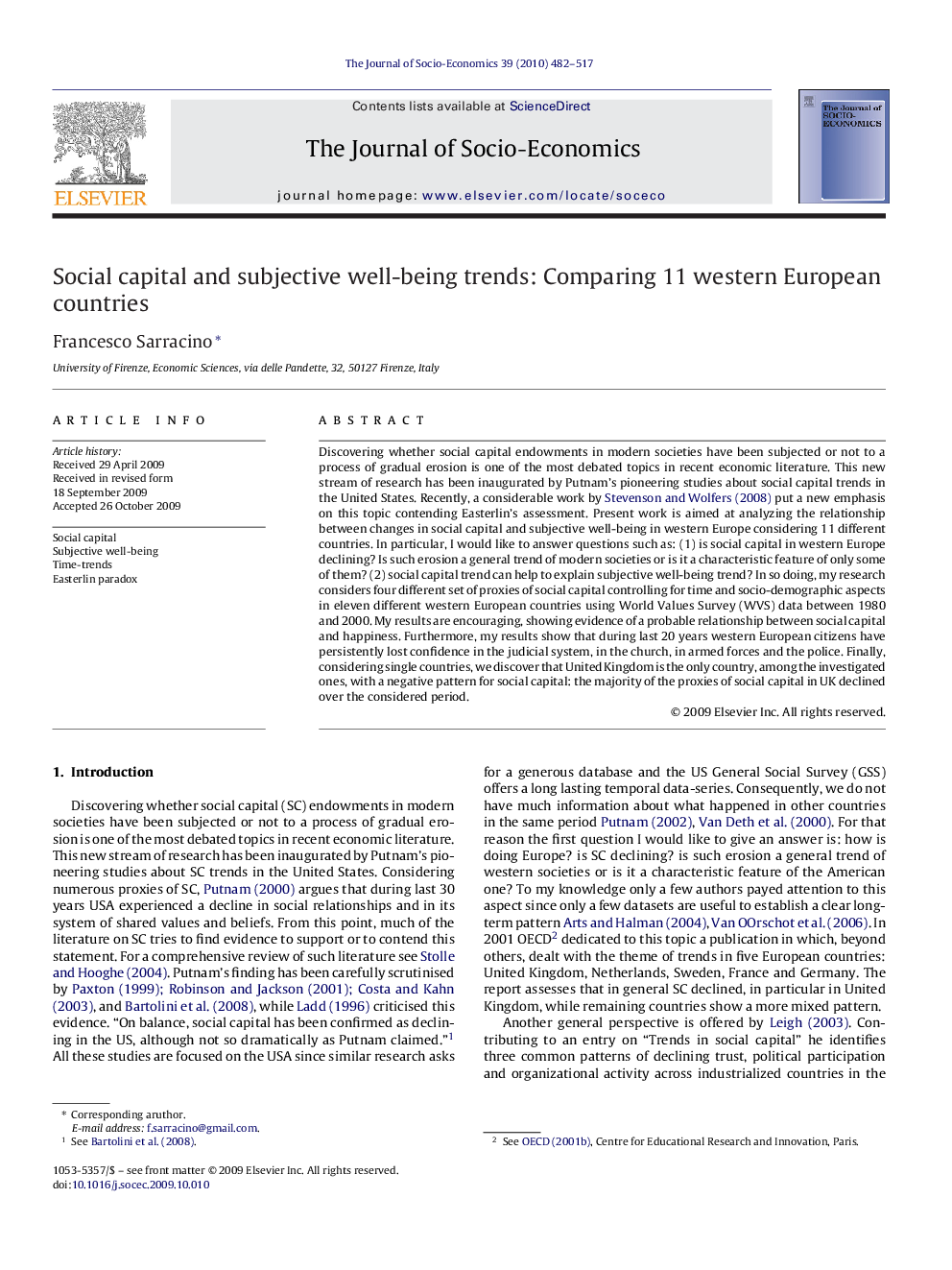| Article ID | Journal | Published Year | Pages | File Type |
|---|---|---|---|---|
| 971371 | The Journal of Socio-Economics | 2010 | 36 Pages |
Discovering whether social capital endowments in modern societies have been subjected or not to a process of gradual erosion is one of the most debated topics in recent economic literature. This new stream of research has been inaugurated by Putnam’s pioneering studies about social capital trends in the United States. Recently, a considerable work by Stevenson and Wolfers (2008) put a new emphasis on this topic contending Easterlin’s assessment. Present work is aimed at analyzing the relationship between changes in social capital and subjective well-being in western Europe considering 11 different countries. In particular, I would like to answer questions such as: (1) is social capital in western Europe declining? Is such erosion a general trend of modern societies or is it a characteristic feature of only some of them? (2) social capital trend can help to explain subjective well-being trend? In so doing, my research considers four different set of proxies of social capital controlling for time and socio-demographic aspects in eleven different western European countries using World Values Survey (WVS) data between 1980 and 2000. My results are encouraging, showing evidence of a probable relationship between social capital and happiness. Furthermore, my results show that during last 20 years western European citizens have persistently lost confidence in the judicial system, in the church, in armed forces and the police. Finally, considering single countries, we discover that United Kingdom is the only country, among the investigated ones, with a negative pattern for social capital: the majority of the proxies of social capital in UK declined over the considered period.
